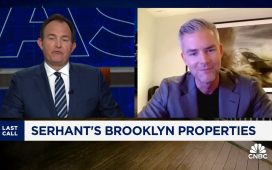Unlock the Editor’s Digest for free
Roula Khalaf, Editor of the FT, selects her favourite stories in this weekly newsletter.
Suella Braverman is seeking to restrict the use of tents by homeless people in urban areas as the government grapples with rising numbers of rough sleepers on Britain’s high streets, according to Whitehall insiders.
The UK home secretary’s proposals also include a new civil offence to deter charities from giving tents to homeless people. Charities could be fined for doing so under the plans if the tents cause a nuisance.
Braverman has pitched the policies for the government’s legislative programme that will be outlined in the King’s speech on Tuesday, people with knowledge of the proposals said.
The plans are being considered for inclusion in two clauses to be inserted in a new criminal justice bill that applies to England and Wales, the people added. The potential legislation would apply to tents that cause a nuisance, following concerns in government about issues such as the obstruction of shop doorways.
The people said the proposals were designed to replace elements of the 1824 Vagrancy Act, which criminalised rough sleeping and begging. The government pledged to repeal the act last year.
“Braverman has formally pitched a ban on tents in urban areas — except on your own land or the back garden — as well as a new civil penalty for charities to stop them giving out tents to homeless people for free,” one of the people said.
UK charities have warned of a growing homelessness crisis caused by a combination of rising rents, a shortage of social and affordable housing and the cost of living crisis leaving more people vulnerable to eviction.
Government figures show 298,430 households received help from their councils or were threatened by homelessness in the year to April 2023, a 7 per cent increase on the previous year and 3 per cent above pre-pandemic levels of 2019-20.
Shelter, the homeless charity, has estimated that on a given night in 2022, more than 270,000 people in England will have been recorded as homeless.
The Red Cross also last month warned the government’s plans to clear a backlog of more than 60,000 historic asylum claims before the end of this year will leave up to 50,000 refugees at risk of homelessness.
The government committed to repeal the 1824 Vagrancy Act in August 2022 alongside a strategy to end rough sleeping for which the government pledged to spend £1bn over three years.
Whitehall insiders stressed enforcement of the proposed tent restrictions would dovetail with support being offered to homeless people affected, including help to move them into shelters.
Since pledging to repeal the act, the Home Office — backed by key Downing Street aides of Prime Minister Rishi Sunak — has been drawing up plans to crack down on what it sees as a rise in antisocial behaviour.
The Home Office published in March a 48-page antisocial behaviour action plan with a foreword by Sunak promising to give “the police and other agencies the tools they need to act and restore pride in our communities”.
The document promised new powers for police to move on rough sleepers from shop doorways and pavements “and to clear the debris, tents and paraphernalia that can blight an area”, while ensuring those “genuinely homeless” were offered support.
The Home Office said on Friday: “We want to ensure our communities feel safe and secure.”
It added that the antisocial behaviour plan included “a package of new measures to better equip the police and local authorities to respond to nuisance begging and rough sleeping which can be harmful to individuals themselves and to the wider public”.
Shelter and Crisis, another homelessness charity, said they had not been consulted over Braverman’s plans but had been anticipating new measures following the decision to abolish the Vagrancy Act.
Polly Neate, chief executive of Shelter, said record homelessness in the UK reflected a decade of failed housing policy, including government failure to build genuinely affordable social homes.
Crisis chief executive Matt Downie said draconian laws to criminalise the use of tents would do nothing to tackle rough sleeping but risked pushing vulnerable people further into destitution.
“Ending rough sleeping is absolutely possible but it requires government to step up and make the changes needed that will actually achieve it, including investing in housing benefit so people can afford their rent. Stripping people of their only protection is not the answer,” he added.












